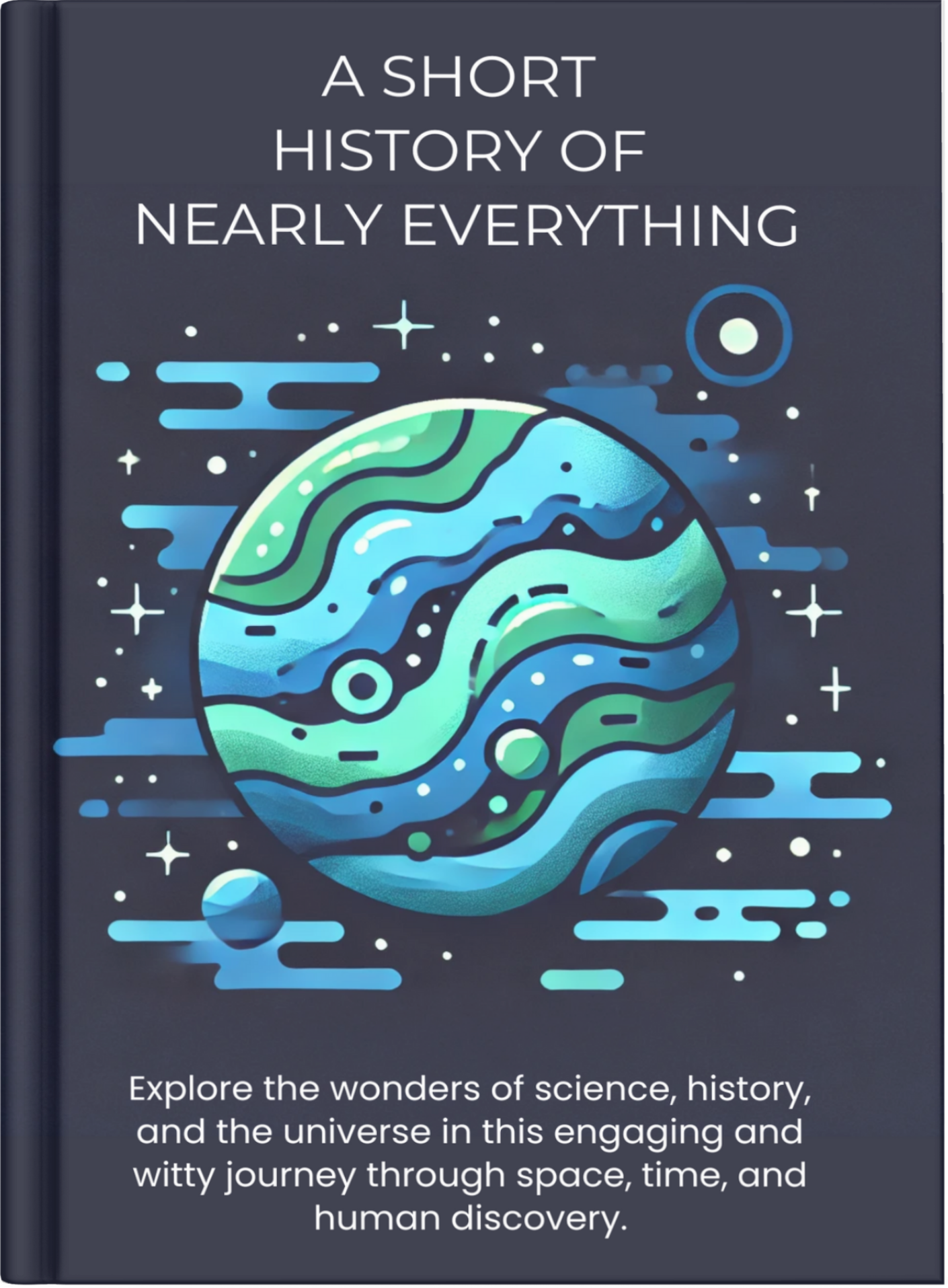
A Short History of Nearly Everything
Bill Bryson
A Short History of Nearly Everything by Bill Bryson is a popular science book that explores the history of the universe, Earth, and life from the Big Bang to the rise of civilization. Bryson aims to make complex scientific concepts accessible and engaging for the general reader, covering topics in physics, chemistry, biology, and geology, while highlighting the contributions of key scientists and the challenges they faced.
0:000:00
Keypoint 1: The Universe's Origins
The origins of the universe are a subject of profound wonder and scientific inquiry. The Big Bang theory, which is the prevailing cosmological model, suggests that the universe began approximately 13.8 billion years ago from an extremely hot and dense singularity. This singularity, a point of infinite density and temperature, expanded rapidly in a massive explosion, giving birth to all matter, energy, space, and time as we know it. This initial expansion set the stage for the universe's continuous evolution.
The concept of the Big Bang is supported by several key pieces of evidence. One of the most compelling is the cosmic microwave background radiation, a faint glow that permeates the universe, which is considered the afterglow of the Big Bang. Discovered in 1965 by Arno Penzias and Robert Wilson, this radiation provides a snapshot of the infant universe, just 380,000 years after its birth, when atoms first formed and light could travel freely.
Another critical piece of evidence is the observed redshift of distant galaxies, which indicates that the universe is still expanding. This discovery, made by Edwin Hubble in the 1920s, showed that galaxies are moving away from us in all directions, suggesting that the universe was once much smaller and has been expanding ever since.
The vastness and complexity of space are staggering. The universe contains billions of galaxies, each with millions or even billions of stars. The scale is so immense that light from the most distant galaxies takes billions of years to reach us, meaning we see them as they were in the distant past. This vast expanse is filled with mysteries, from dark matter and dark energy, which make up most of the universe's mass-energy content, to the potential for other forms of life.
Understanding the universe's origins not only satisfies human curiosity but also provides insights into fundamental questions about existence and the nature of reality. The Big Bang theory, while robust, continues to be refined as new observations and technologies emerge, offering a deeper understanding of the cosmos and our place within it.
The concept of the Big Bang is supported by several key pieces of evidence. One of the most compelling is the cosmic microwave background radiation, a faint glow that permeates the universe, which is considered the afterglow of the Big Bang. Discovered in 1965 by Arno Penzias and Robert Wilson, this radiation provides a snapshot of the infant universe, just 380,000 years after its birth, when atoms first formed and light could travel freely.
Another critical piece of evidence is the observed redshift of distant galaxies, which indicates that the universe is still expanding. This discovery, made by Edwin Hubble in the 1920s, showed that galaxies are moving away from us in all directions, suggesting that the universe was once much smaller and has been expanding ever since.
The vastness and complexity of space are staggering. The universe contains billions of galaxies, each with millions or even billions of stars. The scale is so immense that light from the most distant galaxies takes billions of years to reach us, meaning we see them as they were in the distant past. This vast expanse is filled with mysteries, from dark matter and dark energy, which make up most of the universe's mass-energy content, to the potential for other forms of life.
Understanding the universe's origins not only satisfies human curiosity but also provides insights into fundamental questions about existence and the nature of reality. The Big Bang theory, while robust, continues to be refined as new observations and technologies emerge, offering a deeper understanding of the cosmos and our place within it.

